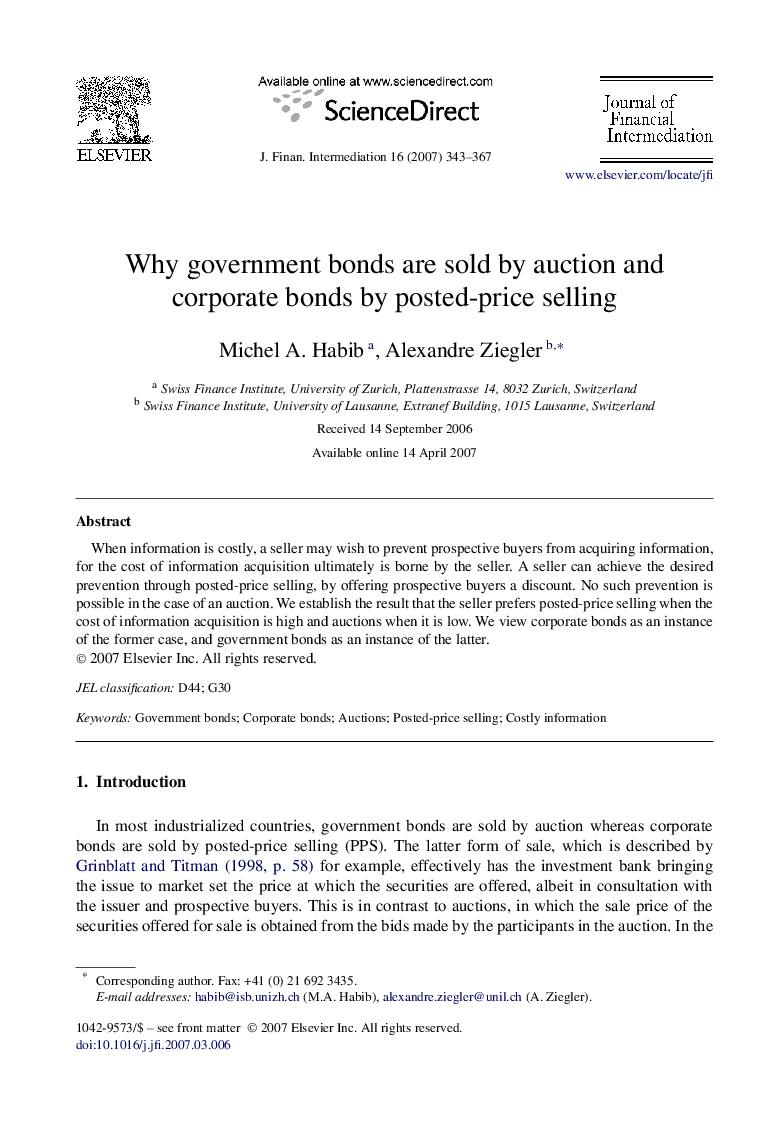| Article ID | Journal | Published Year | Pages | File Type |
|---|---|---|---|---|
| 961125 | Journal of Financial Intermediation | 2007 | 25 Pages |
Abstract
When information is costly, a seller may wish to prevent prospective buyers from acquiring information, for the cost of information acquisition ultimately is borne by the seller. A seller can achieve the desired prevention through posted-price selling, by offering prospective buyers a discount. No such prevention is possible in the case of an auction. We establish the result that the seller prefers posted-price selling when the cost of information acquisition is high and auctions when it is low. We view corporate bonds as an instance of the former case, and government bonds as an instance of the latter.
Related Topics
Social Sciences and Humanities
Business, Management and Accounting
Strategy and Management
Authors
Michel A. Habib, Alexandre Ziegler,
